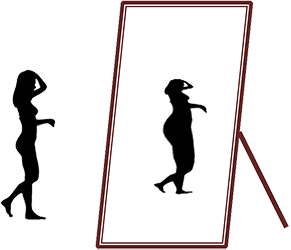How can i control my food intake in healthy amounts?
10 Answers
Last Updated: 05/28/2019 at 6:34am


Moderated by
Lisa Groesz, PhD
Psychologist
With evidenced based therapies, we find the root of the problem together to implement solutions. We all face crises, transitions, or disorders at some time.
Top Rated Answers
I find the best way to control your food is to make it out of your control. Turn to a parent, friend or loved one and ask them to help. during meal times ask them to make you a plate, therefore it is out of your control and you don't have to worry.
Anonymous
April 1st, 2015 1:54pm
This is a very general question for something that varies from each individual. Please be mindful that our bodies are different; gender/age/size/metabolism/level of activity/occupation plays a SIGNIFICANT role in your food intake. Moreover, what's the purpose of controlling your food intake? Would it be having a clean diet (avoiding fats, sugar and salt - balanced on everything else?), a diet to lose weight (balancing between energy output/input - carbohydrate intake plays a big role) and a diet to gain muscles (high in protein)
I could type an essay but I'm going to generalise this: whatever your pick, a general guideline you can follow is to ensure that you follow the Healthy Diet Plate/Pyramid. Here are links you might consider looking at:
www.hsph.harvard.edu/nutritionsource/healthy-eating-plate/
http://www.healthline.com/health/balanced-diet#Calories2
http://www.webmd.com/diet/lose-weight-fast-how-to-do-it-safely
Please consider all of these factors before you embark on a healthy diet. Whatever it is, kudos to you for making an effort to be healthy.
Anonymous
April 16th, 2015 3:47am
I personally ask myself a few questions before eating something. Such as, how much of this does my body need? Does this have something in it that is bad for my body? Do I really need it or do I want it? Just questions like that.
Anonymous
April 22nd, 2015 11:36am
I guess, just eat what you feel will be a comfortable intake but have it a reasonable portion that your stomach wont expand on. Don't over eat and it'll be alright :)
Anonymous
February 23rd, 2016 11:33am
Keep a food journal? When you feel like eating for reasons other than hunger ( cravings/ comfort etc) , talk about and express those emotions instead?
Eating slowly can help your body and brain stay in sync. Your stomach needs time to tell your brain you're full so if you eat slowly, it will allow time for those signals to hit the brain.
You can control your food intake by usin a smaller plate. This might work because by using a smaller plate, you are forced to put a smaller amount on your plate.
Portioning is a great way to control your amount of food intake. Instead of snacking all day or eating a larger than average amount at less amounts of sittings/eating times. Portion out smaller quantities of foods from the healthy part of the food pyramid for each meal. Have lesser times that you eat during the day such as 3xs a day with smaller portions at each meal time. Also distraction is a great key when trying to fast or refrain from over eating. Try keeping your body and mind busy with great activities that interest you.
Anonymous
January 16th, 2018 4:45pm
by preparing a chart and keeping a track of every consumption. Always cooking healthy on daily basis. understand the amount of protein your body needs and try to get the requirements.
Firstly, eat in peaceful environment free of distractions. Don't talk, watch TV, listen to radio, use cell phone or computer during the meal. Just focus on food. Watch, feel, smell, taste every bite you put into your mouth. When you notice that your stomach is signalling you that you are fed up, stop eating. Secondly, eat a lot of fruit, vegetables, legumes and other food with a lot of dietary fiber. Dietary fiber makes you fed up earlier and lowers glychemic index of the food which means that you stay fed up for longer period of time and needn't to eat snacks so often. Thirdly, watch the food labels while buying foods and take healthier foods instead of unhealthier ones.
Related Questions: How can i control my food intake in healthy amounts?
How can I control my eating when I have impulse control issues?How do I leave a toxic relationship?Is skinny always considered a compliment? Is it possible to have a binge eating disorder but still be skinny? What is body dysmorphia?Can you be thin and have a binge eating disorder?Why can't I eat as much as I used to?Why can't I stop the wanting of throwing up my food? I've been eating more than I used to lately, and it's making me even more anxious about myself. How can I stop being so stressed about gaining weight?Why am I so Obsessed with my weight?